Retro Replay Review
Gameplay
Makai Kingdom carries forward the signature tactical RPG formula that Nippon Ichi laid out in Disgaea and its spin-offs, but it injects enough fresh ideas to stand on its own. Battles occur on fully rotating 3D fields, allowing you to zoom in on your characters as they leap on and off floating platforms, towers, and bridges. Each map feels like a miniature puzzle box: you’ll need to consider elevation, distance penalties, and environmental hazards just as carefully as you plan your attacks.
One of the most distinctive mechanics in Makai Kingdom is the Castle System. Before entering a mission, you configure a customizable fortress that can be carried from battle to battle. Enemies you defeat can be “stolen” and assigned to man your castle’s defense turrets or to take on specific roles in future skirmishes. This Reverse Piracy mechanic not only bolsters your army but also rewards exploration of every nook and cranny of each map.
Combat itself is classic turn-based fare, but it’s seasoned with a sprinkle of madness. Units gain experience and learn skills in battle, while “Humiliation Skills” trigger when you defeat enemies under certain conditions—such as finishing them with specific weapon types or in mid-air. These extra abilities are game-changers, encouraging you to experiment with squad composition and to replay previous stages in search of new skill unlocks.
In between missions, the Item World also makes a triumphant return. By delving into your weapons and gear, you can power them up, adjust their stat boosts, and even recruit bosses you encounter deep inside. It’s a meta-layer of progression that can easily swallow hours of playtime—perfect for completionists looking to craft the ultimate weapon or grind their favorite Overlord’s levels sky-high.
Graphics
Visually, Makai Kingdom embraces a vivid anime aesthetic, pairing 2D character portraits with isometrically rendered 3D battlefields. The result is a seamless blend of charming sprite work and dynamic camera angles that accentuate every flashy special attack. When your Overlord Zetta unleashes a skill, the screen fills with vibrant particle effects and over-the-top animation that rarely feels dated, even by modern standards.
Character designs are delightfully overblown, each Overlord sporting an excess of horns, spiky hair, or theatrical armor. The palette leans heavily on purples, reds, and black to evoke that classic Netherworld vibe, but it also doles out splashes of electric blue and bright green whenever spells or gadgets come into play. On the PS2 hardware, frame rates hold up admirably; even the most elaborate battles run smoothly with minimal slowdown.
Between battles, the world map is rendered in a stylized chibi form, and menu interfaces are crisp and intuitive. Tooltips pop up with concise explanations of new mechanics, and item icons are immediately recognizable. While the home base screens can feel a tad cluttered once your roster expands, the overall presentation remains user-friendly, ensuring you’re not fumbling through submenus when you just want to jump into the next skirmish.
Story
Makai Kingdom’s narrative is a riotous romp through Netherworld politics. You take on the role of Lord Zetta, whose cheeky arrogance is matched only by his compulsion to rewrite history in his favor. After botching an attempt to reshape the past, Zetta finds himself on the losing side—his kingdom in ruins and his ego in shambles. When three scheming Overlords appear with promises of power, you’re thrust into a madcap quest for revenge, redemption, or at least another chance to show up your rivals.
The script dances between slapstick humor and high-stakes drama, frequently breaking the fourth wall to rib the player for grinding or to poke fun at genre clichés. Dialogue is littered with pop-culture quips, and even the most serious plot twists are undercut by a well-timed one-liner. It’s this self-awareness that endears Makai Kingdom to long-time tactical RPG fans; the game knows exactly what makes the genre tick, then gleefully blows it up with over the top personalities.
Supporting characters—from mischievous demons to earnest knights—each bring their own brand of chaos to the story. Quirky sidequests pepper the campaign, offering glimpses into the Netherworld’s lesser-seen corners and fleshing out NPCs who might otherwise vanish into the background. While there’s a core narrative that propels you forward, the real fun lies in the game’s willingness to let characters deride one another and the player at every turn.
Overall Experience
Makai Kingdom strikes a rewarding balance between approachability and depth. Newcomers to Nippon Ichi’s brand of mayhem will find a wealth of tutorials and manageable difficulty settings, while series veterans can crank up the challenge by tackling higher-level Item World stages or diving into the post-game bosses. The sheer volume of content—main story missions, castle customization, item dives, and side events—can easily reward dozens of hours of playtime.
There are moments where the complexity can overwhelm, especially if you’re unprepared for the intricate web of status effects, geo panels, and enemy formations that each map can throw at you. However, the learning curve feels intentional rather than punitive, and once you master the core systems, battles evolve into satisfying strategic puzzles that demand both foresight and on-the-fly adaptation.
In sum, Makai Kingdom: Chronicles of the Sacred Tome is a joyful explosion of tactical depth wrapped in irreverent humor and colorful presentation. Its inventive mechanics—Reverse Piracy, the Castle System, Humiliation Skills, and the ever-addictive Item World—set it apart from its peers, giving fans of the genre more reasons to dive in and tinker. Whether you’re seeking a lighthearted romp through Netherworld or a deep, stats-driven grind, this title offers a robust package that remains engaging from the first skirmish to the final boss encounter.
 Retro Replay Retro Replay gaming reviews, news, emulation, geek stuff and more!
Retro Replay Retro Replay gaming reviews, news, emulation, geek stuff and more!
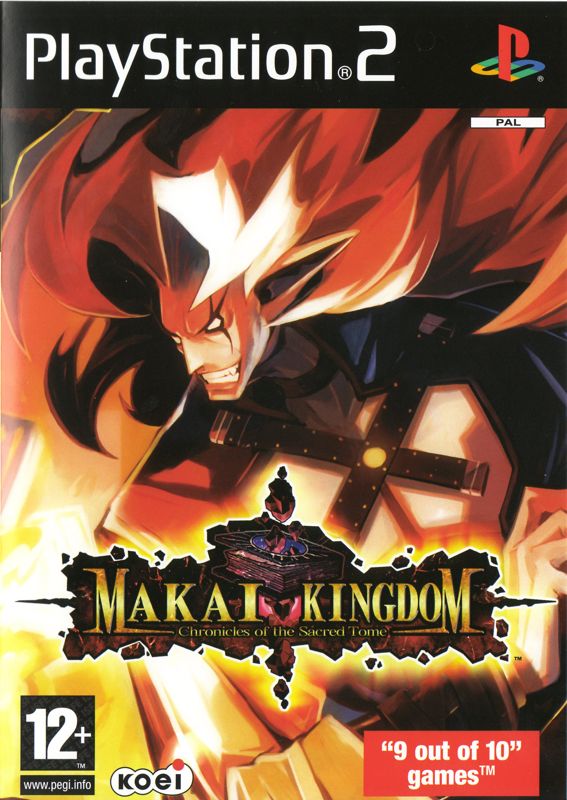
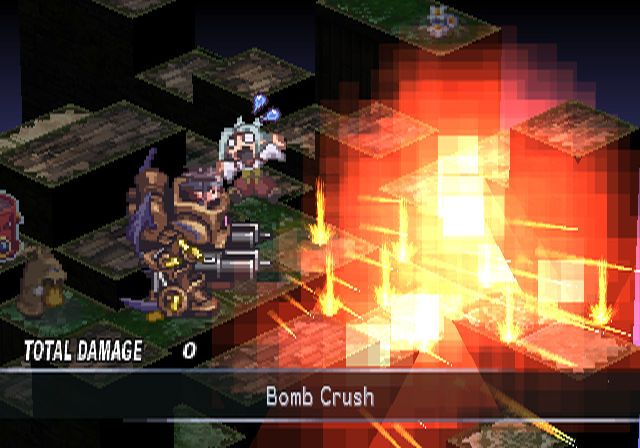
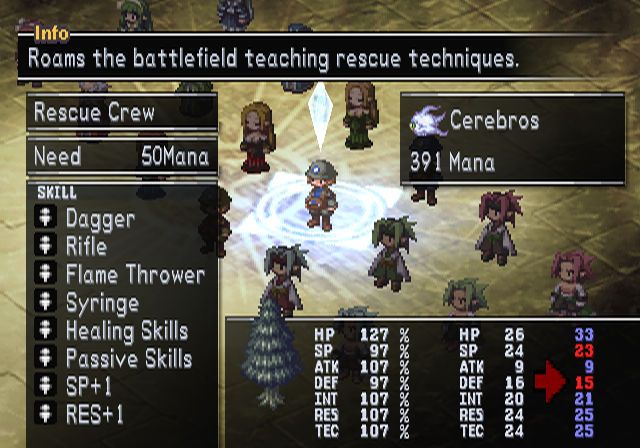
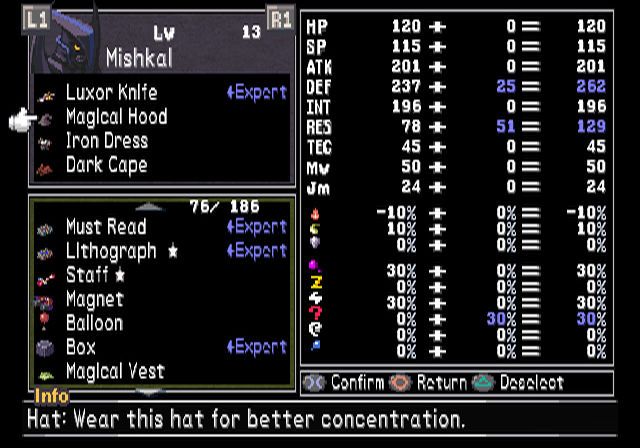
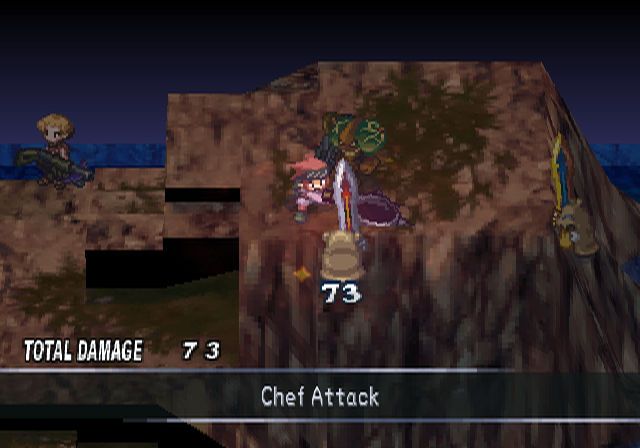
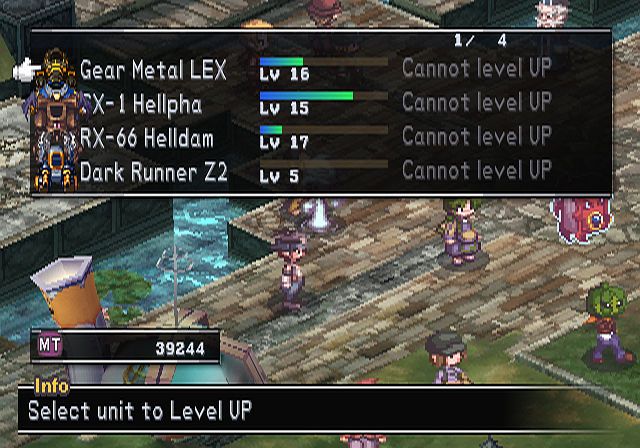


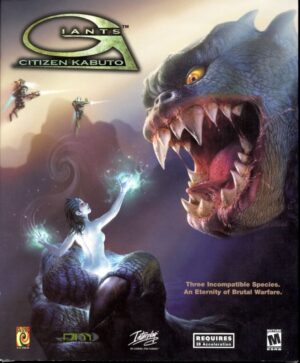
Reviews
There are no reviews yet.